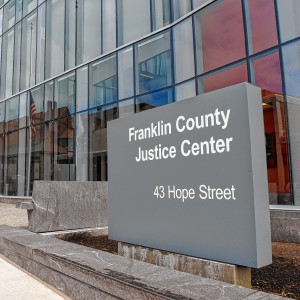Report eyes role for schools, pediatric providers in behavioral health crisis
| Published: 01-22-2023 2:30 PM |
BOSTON — Citing progress in addressing children’s behavioral health as well as a need for further improvement, a new report suggests the potential for schools and pediatric primary care providers to play a more significant role in addressing a “long-standing crisis.”
The 45-page report, released last week by the Massachusetts Association of Health Plans, draws from 25 interviews with unnamed system insiders to lay out insights and recommendations for policymakers to weigh this year as the state begins implementation of a mental health access law that was signed in August.
The report calls on Gov. Maura Healey’s administration to continue with a roadmap developed under Gov. Charlie Baker’s administration that aims to create a “front door” to the behavioral health care system. That roadmap is designed to make a 24/7 behavioral health helpline available this year, ensure coverage for preventive behavioral health services in primary care settings, grow community behavioral health centers, increase inpatient and 24-hour behavioral health beds, and deliver pay increases for behavioral health care providers.
The report also recommends changes to bring more order and cohesion to a system knocked by critics as disconnected and lacking coordination. It recommends the creation of a public education campaign regarding the availability of urgent care and crisis services, the development of specialty services for high-needs children, and more coordinated care for children who receive services from multiple agencies.
“Stakeholders universally supported these policies and believed that they formed a solid foundation for addressing the identified challenges,” the report reads.
The stakeholders were mainly health plan and care providers, but also included school officials from Boston and Methuen, state mental health and health and human services officials, and representatives from the Parent/Professional Advocacy League (PPAL), the Blue Cross Blue Shield Foundation, and the Massachusetts Association for Mental Health.
“It is imperative that we look upstream and direct more resources for screening and prevention in primary care and school settings,” said Marcia Fowler, CEO at Bournewood Health Systems and a former state mental health commissioner. “Services need to be available for children and families in the communities in which they live, delivered by professionals who represent the many diverse communities in the commonwealth.”
The mental health care law enacted over the summer calls for a statewide program to assist in implementing behavioral health services in each school district, and requires each school committee to ensure that all schools have written medical and behavioral health emergency response plans.
Article continues after...
Yesterday's Most Read Articles
 Greenfield man arrested in New York on murder charge
Greenfield man arrested in New York on murder charge
 Former Leyden police chief Daniel Galvis charged with larceny
Former Leyden police chief Daniel Galvis charged with larceny
 Judge dismisses case against former Buckland police chief
Judge dismisses case against former Buckland police chief
 Greenfield Police Logs: April 9 to April 17, 2024
Greenfield Police Logs: April 9 to April 17, 2024
 Millers Meadow idea would ‘completely transform’ Colrain Street lot in Greenfield
Millers Meadow idea would ‘completely transform’ Colrain Street lot in Greenfield
 Greenfield’s Court Square to remain open year-round for first time since 2021
Greenfield’s Court Square to remain open year-round for first time since 2021
Citing numerous statistics, the report chronicles the “alarming” numbers of young people struggling with behavioral health challenges, stating that even before the pandemic, those challenges “were the leading cause of disability and poor life outcomes in young people.”
“COVID-19 made a bad situation even worse,” the report states.
A U.S. surgeon general report in late 2021 said that since the start of the pandemic, 25% of youths who were surveyed experienced depressive symptoms and 20% reported feeling anxious — “in both cases, more than double the pre-pandemic rate.”
The report states Massachusetts is lower than the national average for teen suicide and traumatic events known as “adverse childhood experiences,” but higher than the national average for anxiety, depression, alcohol use and illicit drug use among children and adolescents. Nearly 64% of Massachusetts children who have severe depression do not receive any behavioral health treatment, compared to nearly 60% nationally.

 Joannah Whitney of Greenfield wins 33rd annual Poet’s Seat Poetry Contest
Joannah Whitney of Greenfield wins 33rd annual Poet’s Seat Poetry Contest William Strickland, a longtime civil rights activist, scholar and friend of Malcolm X, has died
William Strickland, a longtime civil rights activist, scholar and friend of Malcolm X, has died Photos: A musical classic returns
Photos: A musical classic returns Northfield appeals to Warren, Markey for Schell Bridge aid
Northfield appeals to Warren, Markey for Schell Bridge aid
